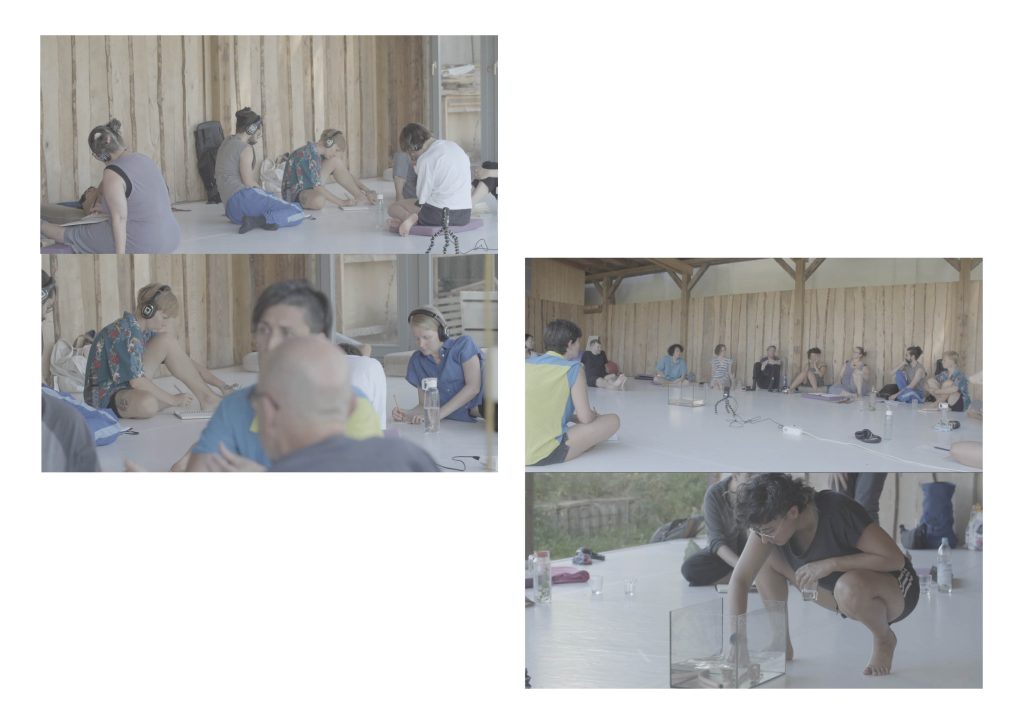
In one of the workshops, a mysterious object symbolized a submarine cable, prompting participants to engage, unravel, and refine the story, which was divided into three parts narrated from different viewpoints.
How do our bodies and trajectories affect our possibilities and limits when it comes to documenting, investigating, and building a transmedia or transdisciplinary inquiry?
The aim of the ongoing project Feminist Architectures of Investigation is to explore how to weave together diverse perspectives and trajectories that can complement, question, and provoke in depth. The starting point is investigative journalism and its union with feminist research methodologies, but here the term journalism does not assume anything universalizing. On the contrary, the proposal is for a journalism that draws from the sources and constructs alongside feminist and queer knowledge and movements.
Thus, we are talking about inquiry involving the body—one that is not additional but integral to the process of identifying, constructing, and understanding the limits of each voice, the positionalities they occupy, and how they complement each other. This is how the project enters the realm of socio-environmental justice, the right to land and territories, to understand the flow of megaprojects in a transnational context.
The project focuses on developing feminist investigative frameworks for megaprojects, both digital and non-digital, recognizing that constructing questions about these vast infrastructure initiatives is part of an ongoing journey shaped by lived experiences, alliances, awareness of positionalities, and challenges. It began in 2023 during participation in the Greenweb Fellowship, which allowed transmedia journalist Camila Nobrega, founder of Beyond the Green, to delve into the process of Beyond itself. From there, she organized a series of workshops and performative shares. This was the kickoff for the project Feminist Architectures of Investigations, which has already participated in two feminist festivals and two meetings promoted by artists and researchers in Germany.
The workshops and shares brought together artists, activists, journalists, researchers, and other participants. The invitation was not for participants to engage in discussions through words alone, but for investigations to also arise from senses and movements, navigating between fiction and non-fiction. This format invited participants to question their own limits of perception, feelings, and interpretive lenses, enriching the collective exploration of the project’s themes.
By embracing transmedia formats and a decolonial feminist framework, the project seeks to explore how these megaprojects—such as hydropower dams and digital infrastructures — reconfigure territories and impact communities, often without their consent. This approach emphasizes collaboration and the need to understand the complex realities surrounding these projects.
Furthermore, the project aims to critique traditional narratives in journalism, which often overlook the intersectionality of gender, class, and environmental issues. It highlights the evolution of storytelling practices among feminists who are now addressing power dynamics in environmental discourse. By weaving together stories and data, the project invites ongoing dialogue about the implications of gender, identity, and ecological justice within the context of megaprojects. Ultimately, it seeks to open new paths for investigation and collective understanding in this critical area.





